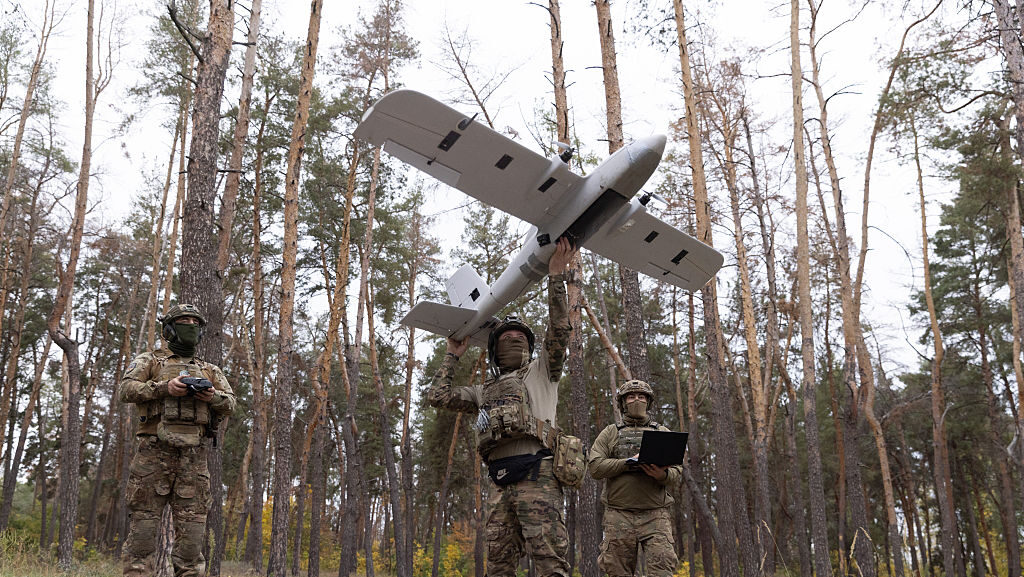World
Nordic Military Leaders Demand Proven Weapons from Suppliers

In a significant shift in military procurement strategy, Nordic military leaders are insisting that any new weapon systems must demonstrate their effectiveness in real combat scenarios, specifically referencing the ongoing conflict in Ukraine. During a recent panel discussion at the AUSA (Association of the United States Army) conference in Belfast, Maj. Gen. Peter Harling Boysen, chief of the Royal Danish Army, emphasized this new requirement to industry representatives, stating, “I’m never going to buy anything that hasn’t worked in Ukraine.”
Boysen’s assertion reflects a growing trend among military leaders to prioritize proven technologies over untested innovations. He routinely questions suppliers about whether their products have been deployed successfully in Ukraine, understanding that real-world performance is vital for decision-making in defense procurement.
Similarly, Lt. Gen. Pasi Välimäki, Commander of the Finnish Army, reinforced this sentiment by highlighting the advantages of systems that have already been tested in combat. He noted that products showcased at AUSA may look appealing, but those with practical application in Ukraine provide a clearer indication of reliability. “That’s the secret,” he remarked, stressing the need for mature platforms in a demanding procurement environment.
Latvia’s approach is aligned with this emphasis on practical testing. Aivars Purinš, Latvia’s state secretary, stated that manufacturers should evaluate new technologies in conditions that closely mimic deployment scenarios. “We have had too many stories… where the best technology solutions were deployed, and suddenly they didn’t work as they were supposed to,” he said. This underscores the importance of rigorous testing to avoid repeating past mistakes.
Latvia is actively working on enhancing its technological capabilities by establishing a drone competency center in Riga. This facility aims to be a national hub for developing and integrating drone technologies within the Latvian National Armed Forces. The center will also facilitate the supply of drone systems during crises, supporting local companies in creating military-specific solutions.
Maj. Gen. Lars Lervik, chief of the Norwegian Army, highlighted similar initiatives within Norway, which recently launched a comprehensive drone program. With an investment of approximately 1.5 billion Norwegian Krone (USD 149 million) over the next decade, this program aims to coordinate drone efforts across various military branches while also supporting Ukraine. Lervik noted the importance of integrating drones for intelligence, surveillance, and reconnaissance tasks.
The focus on uncrewed systems comes amid rising tensions due to Russian drone incursions across Europe, prompting NATO to bolster its presence along the Eastern Flank. As the threat landscape evolves, military leaders are increasingly advocating for robust counter-drone measures.
In discussing Norway’s long-range precision fire acquisition, Lervik mentioned delays in selecting a preferred contractor, which was initially expected this past summer. He expressed hope that a recommendation would be made to the government by Christmas, paving the way for a contract award in early 2026. Key contenders for this contract include Lockheed Martin’s M142 High Mobility Artillery Rocket System (HIMARS) and South Korea’s Hanwha Aerospace K239 Chunmoo Multiple Launch Rocket System (MLRS).
Further developments include Norway’s plans to acquire up to 80 BAE Systems CV90 infantry fighting vehicles, upgraded to the advanced MkIV standard, as part of a collaborative procurement effort with Estonia, Finland, Lithuania, the Netherlands, and Sweden. Lervik mentioned that while a timeline for the contract remains uncertain, an agreement could be reached early next year.
Overall, these developments reflect a significant shift in the procurement landscape, driven by the lessons learned from ongoing conflicts. The emphasis on proven technologies and collaborative initiatives among Nordic countries indicates a strategic approach to modernize military capabilities effectively.
-

 Science2 weeks ago
Science2 weeks agoIROS 2025 to Showcase Cutting-Edge Robotics Innovations in China
-

 Politics2 weeks ago
Politics2 weeks agoJudge Considers Dismissal of Chelsea Housing Case Citing AI Flaws
-

 World2 weeks ago
World2 weeks agoBravo Company Veterans Honored with Bronze Medals After 56 Years
-

 Top Stories2 weeks ago
Top Stories2 weeks agoIndonesia Suspends 27,000 Bank Accounts in Online Gambling Crackdown
-

 Lifestyle2 weeks ago
Lifestyle2 weeks agoStone Island’s Logo Worn by Extremists Sparks Brand Dilemma
-

 Sports2 weeks ago
Sports2 weeks agoMel Kiper Jr. Reveals Top 25 Prospects for 2026 NFL Draft
-

 Health2 weeks ago
Health2 weeks agoStartup Liberate Bio Secures $31 Million for Next-Gen Therapies
-

 Health2 weeks ago
Health2 weeks agoTop Hyaluronic Acid Serums for Radiant Skin in 2025
-

 World2 weeks ago
World2 weeks agoHoneywell Predicts Record Demand for Business Jets Over Next Decade
-

 Politics2 weeks ago
Politics2 weeks agoNew Jersey Voters Urged to Register Ahead of November Election
-

 Lifestyle2 weeks ago
Lifestyle2 weeks agoMary Morgan Jackson Crowned Little Miss National Peanut Festival 2025
-

 Sports2 weeks ago
Sports2 weeks agoYamamoto’s Mastery Leads Dodgers to 5-1 Victory in NLCS Game 2









